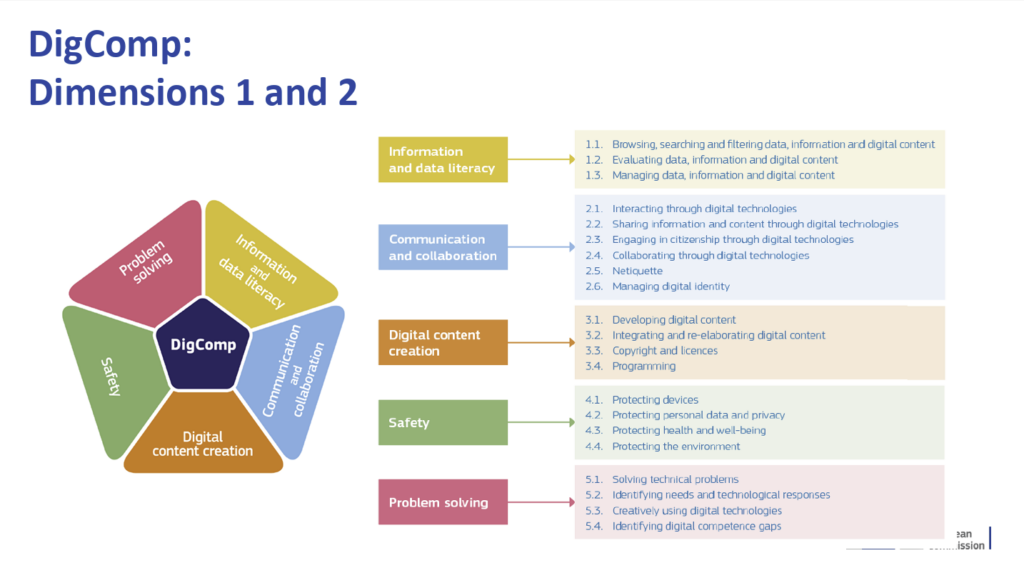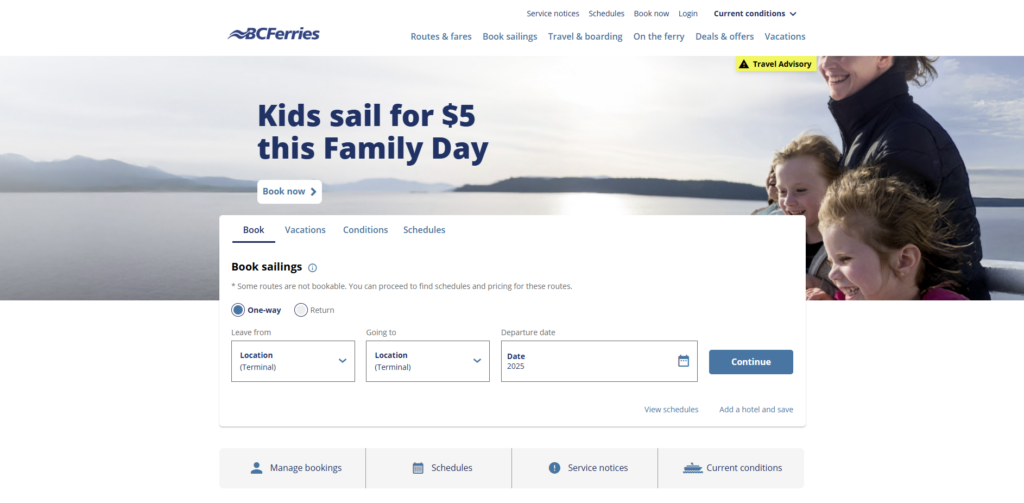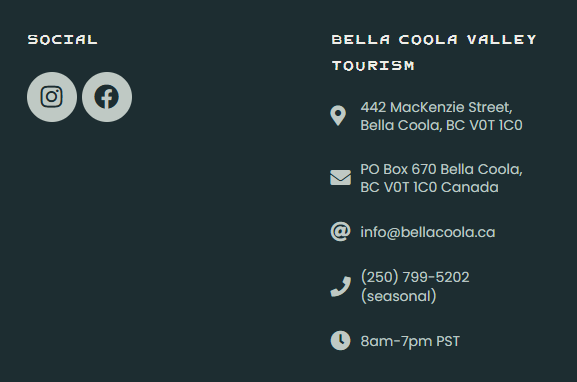To begin my blog I would like to first explore the specific relationship between digital literacy and the tourism industry. While I am a full time student I also have a background in the industry as the “Information Guy” at Bella Coola Valley Tourism. In this role I primarily served as the face of the tourism industry in the community of Bella Coola during the peak season directing visitors in person, over the phone, and by email to the services they were looking for. And of all the things I learned in my 5 seasons in this position, the most important is that it is difficult if not impossible to travel in the modern day without some level of digital literacy. This blog post as a part of a course on digital literacy will then explore some of the skills needed to navigate the digital landscape of the tourism industry

According to the European Framework for Digital Competence there are five broad categories of skills that one can have and engage with in a digital context. Of particular relevance to us here are the categories of Information and Data Literacy, as well as Communication and Collaboration.

This first category deals in gathering and applying information housed in a digital space. This is the first and likely for many most daunting barrier to tourism in the modern day. With the decline of travel agencies and other organizations that do the proverbial heavy lifting for you, the expectation in the modern industry is that the individual will find the necessary information and book accordingly. This includes everything from searching to navigating potentially untrustworthy sources, to engaging with reviews, and even the booking process itself While great effort has gone in to making this process as straight forward as possible with flashy landing pages that direct users to booking and information from the moment they arrive at your website, this only goes so far when prospective visitors lack knowledge on the use of search engines or following ad links. Additionally when less experienced or confident users are able to find their way to these pages it is common for them to be intimidated by complex multi-step booking processes, with many drop down menus, checkboxes, and text fields overwhelming these users. By developing these skills so that users are more capable and confident in gathering information for themselves, as well as improving confidence in filling forms and following instructions, education in this specific field of digital literacy improves individuals abilities to explore and broaden their understanding of the world.
Moreover communication skills serve as an important backup in the event the above breaks down. Try as we might websites do not always work right and sometimes the human touch is needed to point you in the right direction. That’s where people like me came in. Many tour companies, accommodations, and communities have services in place to provide assistance when needed to those who may for any reason be struggling to navigate or use the digital tools so common in the industry today. However the quality of information and services these humans are able to provide relies heavily on the ability for those we serve to be able to communicate their needs. While this is not a skill exclusively applicable to the world of the internet, effective communication is a must when interacting with any other human being and fostering these skills early is exceptionally valuable to the one’s ability to navigate the digital world especially when customer service is involved.

Finally we must ask ourselves, if this is so important to the industry, how do we ensure that potential visitors have these skills. And the answer is quite simply education. While the difficulties I have highlighted are predominantly from older tourists who may be used to another era of globetrotting, we also cannot simply expect young people to have absorb these necessary skills. The BC Post Secondary Digital Literacy Framework lays out some guidelines and expectations for skills students should be versed in by certain points in their educational career. And these are not exceptionally advanced skills either. Skills like keyword searches which I highlighted the importance of earlier are recommended to be taught between Kindergarten and Grade 2, with supplementary skills in refining these searches from Grades 3 to 5. Moreover communication and online citizenship is recommended to be taught in various formes all the way from Kindergarten to Grade 12. These are skills that have been deemed valuable to our core education in the modern world. By fostering these skills educators are able to prepare students for a variety of situations from simple browsing to job applications, and yes even the fun filled and adventurous world of tourism
Works Cited
- Bella Coola Valley Tourism: https://bellacoola.ca/
- BC Ferries: https://www.bcferries.com/
- European Framework for Digital Competence: https://unevoc.unesco.org/up/2023_05_16_DigComp.pdf
- BC Digital Literacy Framework: https://www2.gov.bc.ca/assets/gov/education/kindergarten-to-grade-12/teach/teaching-tools/digital-literacy-framework.pdf